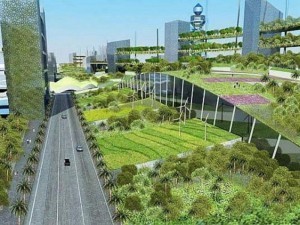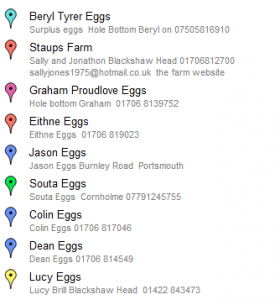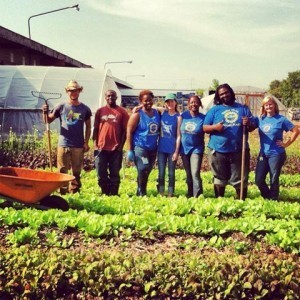Zev Paiss's Blog
May 24, 2025
Get Ready for Silo 42: Exodus
For the thousands of readers who have already read my first two books in the Silo 42 series, "Deception," and "Connection," you can now pre-order book three entitled Silo 42: Exodus.
This installment follows the preparation and eventual exit of 500 Silo 42 residents from the only home they have ever known, in search of a better life. Assuming it can be found.
Reserve your copy today at: https://www.amazon.com/gp/product/B0D...
Warmly,
Zev Paiss
February 9, 2014
Dystopian Sustainability
January 21, 2014
Bring Back Shared Group Homes
 Tiny backyard cottages, micro-apartments, the revival of boarding houses and in-law dwellings—Cascadia is on the bleeding edge of these emerging trends, which reintroduce housing forms of a century ago.
Tiny backyard cottages, micro-apartments, the revival of boarding houses and in-law dwellings—Cascadia is on the bleeding edge of these emerging trends, which reintroduce housing forms of a century ago.
Recently, Sightline released a short book on the gigantic opportunities cities have to make urban living quarters greener, cheaper, and more abundant by eliminating a few municipal rules.
Hidden in city regulations are a set of simple but powerful barriers to affordable housing for all. These rules criminalize history’s answers to affordable dwellings: the boarding or rooming house, the roommate, the in-law apartment and the backyard cottage. In effect, cities have banned what used to be the bottom end of the private housing market.
Unlocking Home: Three Keys to Affordable Community details how to revive inexpensive housing in walkable neighborhoods—at no cost to the public—by striking a few lines of municipal law.
The three keys are re-legalizing rooming and boarding houses, uncapping the number of roommates who may share a dwelling, and welcoming accessory dwellings such as granny flats and garden cottages.
Opening up this housing would:
create new income opportunities for property owners
alleviate the outward pressure of sprawl into farmland and forests
increase residential concentration organically, without big changes to architectural character
yield compact communities that support walking, transit, neighborhood businesses and low-carbon living
Most important, these tactics would generate thousands and thousands of units of inexpensive housing in metropolitan areas, unlocking homes for the many people who need them.
Unlocking Home is a Sightline e-book available for $3.95. Details at this link.
January 16, 2014
Envisioning the Future
 Over the past 30 years, society has moved toward sustainable solutions in a wide number of areas. Innovations are occurring in energy efficient construction, renewable energy systems, local food production, low carbon transportation and mixed use developments.
Over the past 30 years, society has moved toward sustainable solutions in a wide number of areas. Innovations are occurring in energy efficient construction, renewable energy systems, local food production, low carbon transportation and mixed use developments.
How would a city of the future look, feel and run if the innovations we see today were expanded and inter-connected throughout the entire fabric of a medium-sized city? This is the question we aim to answer with the help of visionaries, inventors, business leaders, farmers, engineers and artists. Together, we have the knowledge and experience to make sustainable cities happen in our lifetime.
Come play with us. Let’s do it now.
Building Resiliency: Every Egg Matters
The Egg Map: How to Accelerate Local Food Abundance
Here’s something I found incredibly useful as a way to improve a community’s resilience: an Egg Map.
Take a look at this map of egg producers, from the innovators at Incredible Edible Todmorden UK.
Every point on the map is a home, farm or business that has a chicken coop. Many of them got started with chicken keeping through the Todmorden “Every Egg Matters” campaign.
Given how productive chickens can be, it’s not that hard to overproduce. So, a good portion of these locations produce MORE eggs than they need.
Further, the campaign increased the awareness of people in the town to the benefits of fresh, locally produced eggs — from the radically better taste, particularly if eaten within 48 hours of being laid, to the claim (mostly unproven, although I suspect it is highly dependent on the type of chicken and what you feed them) that they are much better for you than the factory fresh eggs bought in a store.

Most of the locations on the map includes details about how many eggs they have available for sale and contact info (phone/text) for how to reach them.
As you can see, this map provides:
A method by which you can keep a community effort/campaign alive. The map documents it, charts its progress, and keeps it alive after the campaign slows/ends.
A way to connect the community — you can now connect with neighbors to buy food and/or get advice on how to run your own coop.
Provides an extra source of income for coop owners. Income that can eliminate the costs associated with the coop and come in handy in a pinch. Further, by replacing egg imports, it keeps wealth inside the community, where it can do the most good.
Making maps like this may be something you want to do for your community.
If you want to use Google maps, here’s some simple instructions for building your own map (including a video).
If Google or the Internet becomes unavailable for short periods of time, you may want to opt for open source map tools that you can run on a PC connected to a wireless community network.
Growing Local Farmers
 Reprint of story: Chicago Takes Huge Step Towards Retraining for the 21st Century
Reprint of story: Chicago Takes Huge Step Towards Retraining for the 21st Century
CHICAGO–(ENEWSPF)–November 22, 2013. Mayor Rahm Emanuel and the United States Department of Agriculture (USDA) today announced a $300,000 grant to Growing Power’s Farmers For Chicago Program. One of the first programs of its kind in the nation, the Farmers For Chicago Program will provide local non-profits the funding and resources to install the necessary agriculture equipment and train up to 50 local-residents in urban farming skills. The produce grown from Farmers For Chicago farms are then sold at grocery stores and farmers markets throughout the city.
Read More …




